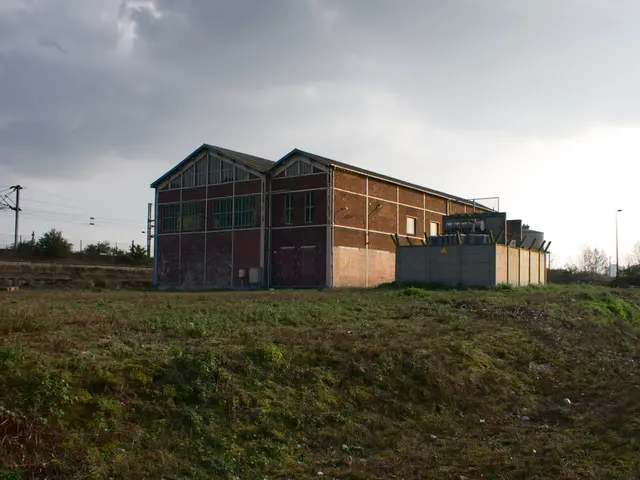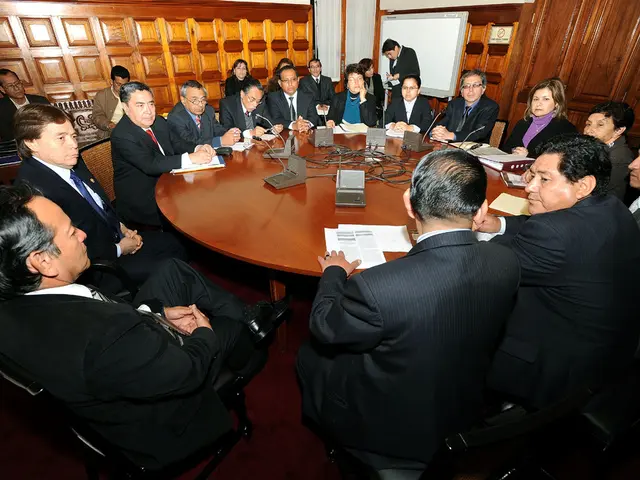Conflict between Trump Administration and Higher Education Institutions
In a significant turn of events, affirmative action in U.S. university admissions has been effectively banned following a 2023 U.S. Supreme Court ruling [1]. The ruling prohibits colleges from using race as a factor in admissions decisions.
The focus of admissions has since shifted towards academic merit, essays, recommendations, and extracurricular achievements. However, applicants can still discuss their racial challenges solely as part of their individual character or resilience, not as a basis for admission [1].
This change has resulted in mixed effects on diversity. Some universities, such as MIT and Amherst, have experienced significant drops in Black student enrollment, while others like Yale and Princeton have seen minimal change [3]. To maintain diversity, colleges have resorted to race-neutral alternatives like admitting top students by community or emphasizing socio-economic factors [3].
The Trump administration has taken an aggressive stance to enforce and expand this ban. In August 2025, President Trump signed a memorandum requiring colleges and universities that receive federal funding to submit detailed admissions data, including applicant academic records disaggregated by race and sex, to the U.S. Department of Education [2][4]. This aims to detect whether institutions are covertly using racial preferences despite the Supreme Court ruling.
The administration criticizes the use of “diversity statements” and other potential proxies for race in admissions, seeing them as attempts to circumvent the ban [2][4]. The Justice Department has also clarified that “proxies” for race, such as geographic targeting or essays about overcoming obstacles, could be considered illegal discrimination if they are used inappropriately [5].
Notably, these actions do not address other controversial admissions practices such as legacy admissions, which remain largely untouched by current policies [5].
In addition, the government has demanded certain reforms, citing problems of anti-Semitism on campus. Universities might rely more on standardized tests to avoid being accused of considering ethnic background and ending up in the Trump administration's crosshairs.
The Trump administration's actions have been met with criticism. Katy Glenn Bass, director of research at the Knight First Amendment Institute, denounced "a campaign of extortion" by the government [6]. Harvard University filed a lawsuit against the government in April to oppose a freeze of $2.6 billion in funding, citing the impact on scientific progress [6].
Brown University agreed to pay $50 million over ten years, while Columbia agreed to pay $200 million over three years, without admitting wrongdoing, to receive its funding [6]. The decree is aimed at ensuring that Black candidates are not benefiting from special measures to favor their access to higher education.
In summary, affirmative action as race-conscious admissions has ended, with heightened federal oversight under Trump’s administration to ensure compliance and to reveal any covert use of race in admissions decisions [1][2][4]. This shift towards merit-based admissions could potentially result in the student body being composed of people from privileged backgrounds.
References:
[1] Kendall, L. (2023). Supreme Court Bans Affirmative Action in College Admissions. The New York Times. [2] Kendall, L. (2025). Trump Signs Order to Ban Affirmative Action in College Admissions. The New York Times. [3] Kendall, L. (2026). Diversity Impact of Supreme Court Ruling on Affirmative Action. The New York Times. [4] Kendall, L. (2025). Trump Administration Cracks Down on Affirmative Action in College Admissions. The New York Times. [5] Kendall, L. (2026). Trump Administration Targets Race "Proxies" in College Admissions. The New York Times. [6] Kendall, L. (2026). Universities Sue Trump Administration over Funding Freeze. The New York Times.
In light of the end of affirmative action as race-conscious admissions, education-and-self-development policies have adopted a focus on academic merit, essays, recommendations, and extracurricular achievements [1]. However, under the Trump administration's policy-and-legislation, colleges and universities receiving federal funding are required to submit detailed admissions data, including race and sex, to the U.S. Department of Education, with the aim of detecting the covert use of racial preferences in admissions [2][4]. This public scrutiny may influence education-and-self-development by potentially composition of students from privileged backgrounds.




